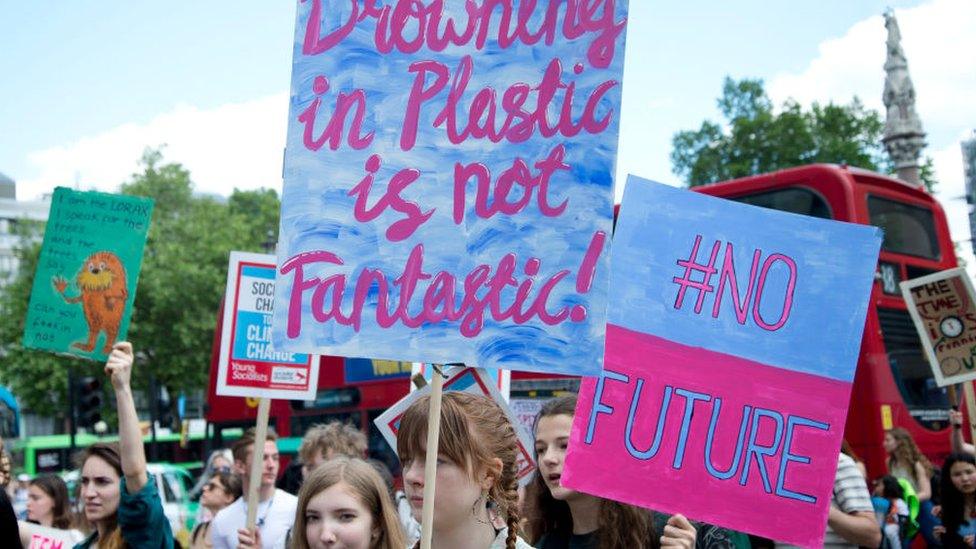The Bristol cafe fighting for a waste-free food industry
- Published
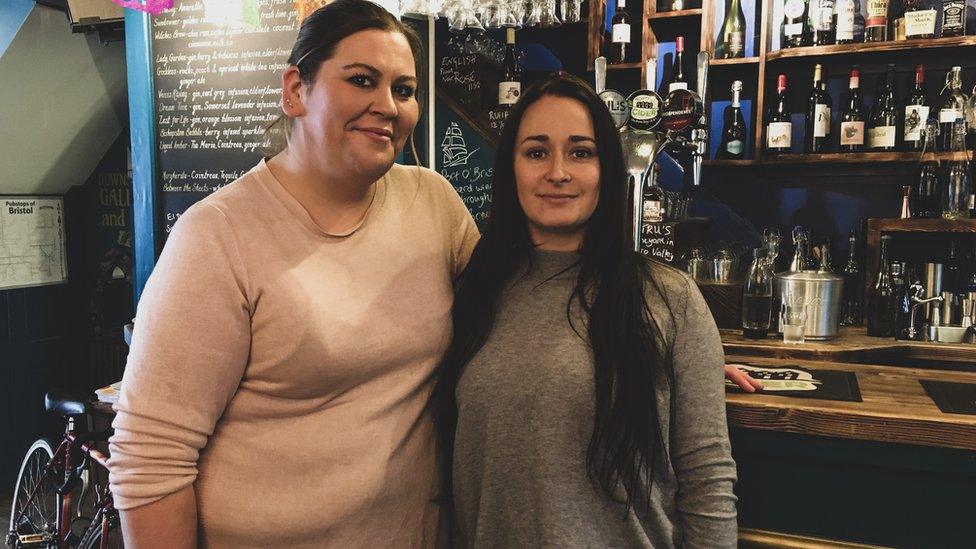
Cousins May Colquhoun and Rosy Allan have opened Bristol's first plastic-free cafe.
A new cafe is hoping to show that the hospitality sector can become completely waste and plastic-free.
Owners of The Plastic Free Catering Company, May Colquhoun and Rosy Allan, opened Eat Me, to show an "environmentally conscious" food industry is possible.
It claims to be the only food business in Bristol to be entirely sustainable.
The cousins hope to advise other food businesses in becoming waste-free and plastic-free.
Miss Colquhoun said the "huge amount of waste" she had seen whilst working in hospitality for 15 years was "crazy" and had inspired her to try and make a change.
She said: "If we can make a tiny difference then other people can follow suit".
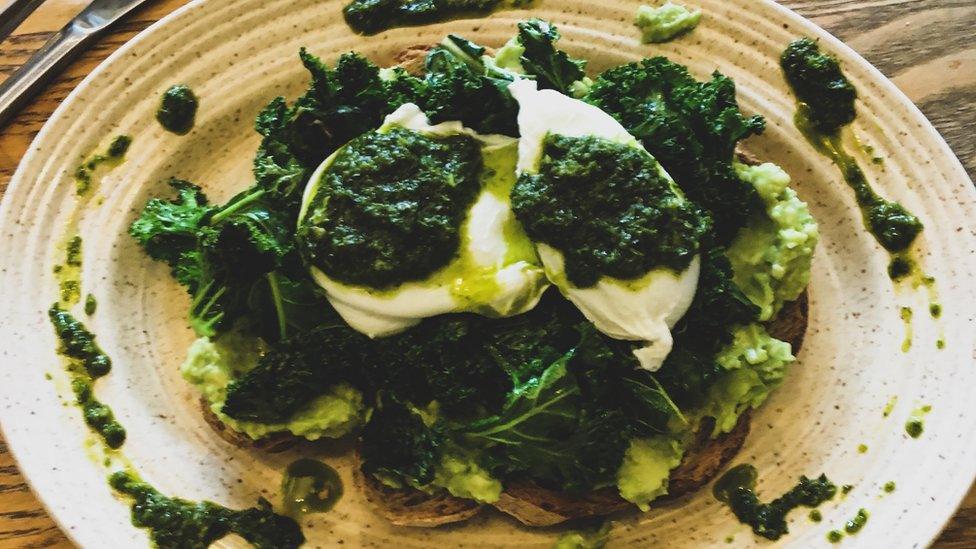
The waste-free cafe sells vegetarian food and any food waste gets composted at a nearby allotment
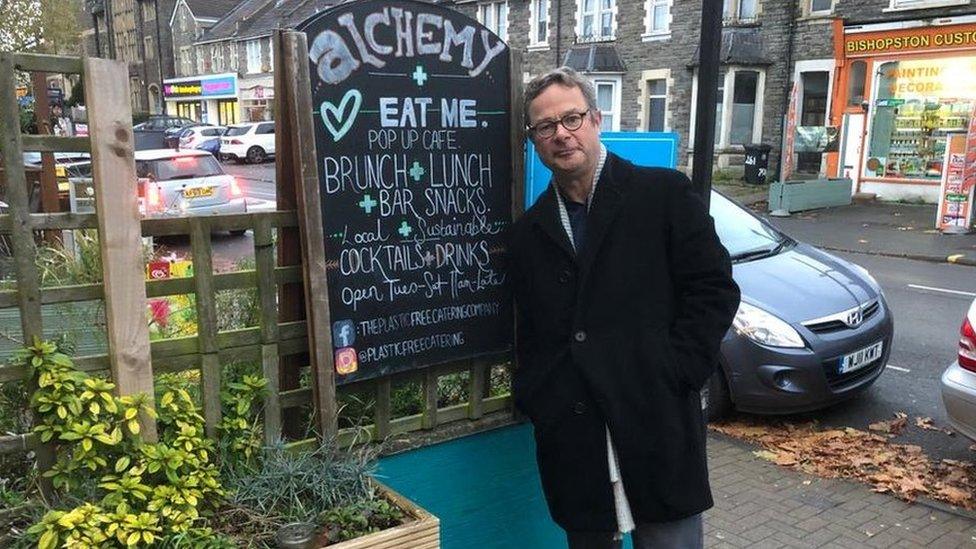
Hugh Fearnley-Whittingstall has also tried to reduce the plastic use in his River Cottage restaurants.
Celebrity chef, Hugh Fearnley-Whittingstall said the Bristol cafe was "blazing a trail" in making waste-free and plastic-free practice in the industry a "norm".
"It's a challenge to go all the way, but there is so much the industry can do.
"We're on the same journey at River Cottage and it's great to see the hospitality sector rising to the challenge of reducing food waste and eliminating single-use plastic."
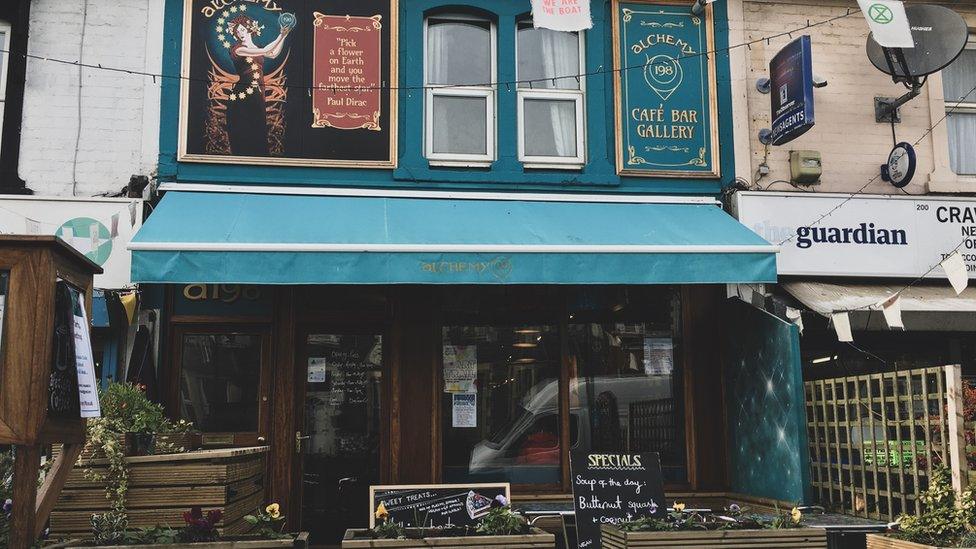
The cousins hope to advise other food businesses on how to become waste and plastic-free within the next year.
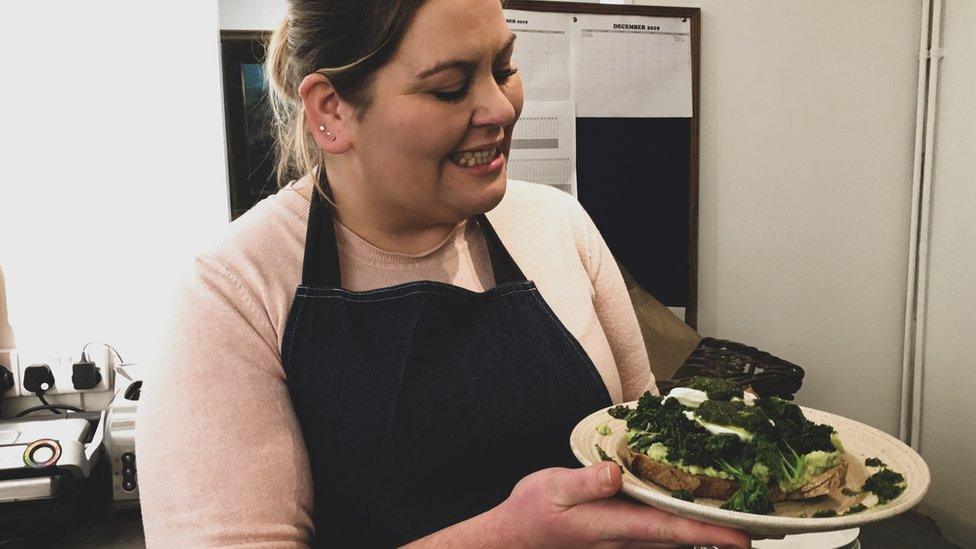
Miss Colquhoun said the cafe does not serve certain food items such as boiled beetroot and halloumi because they come packaged in plastic.
But Miss Colquhoun thinks more can be done.
"People are interested (to go plastic-free), but because it's so much cheaper to buy cheap produce that creates waste, they'll go for the cheaper option, that needs to change.
"We have had to not sell certain items like beetroot and halloumi because they come packaged in plastic and source all of our food from nearby.
"There should also be a plastic tax, just like the sugar tax" she added.
- Published4 April 2019
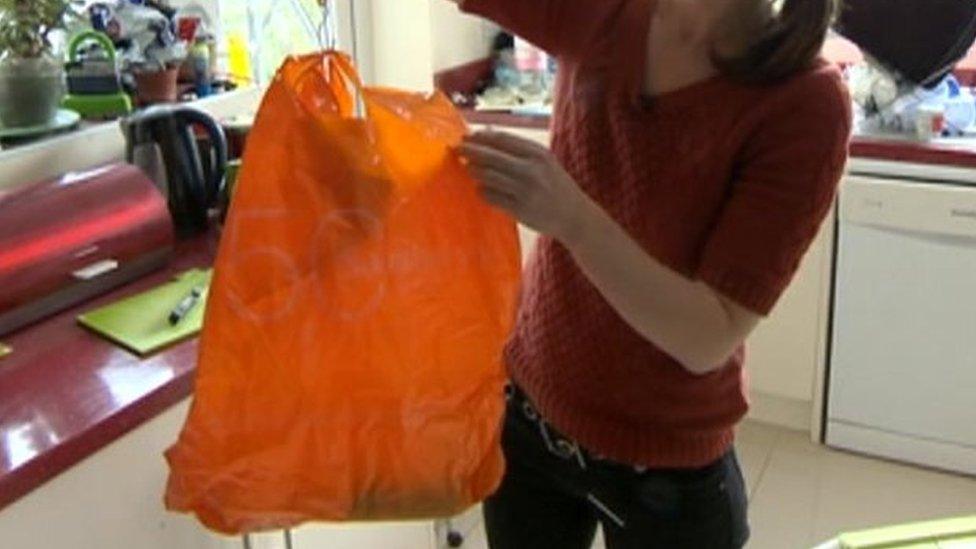
- Published10 October 2019
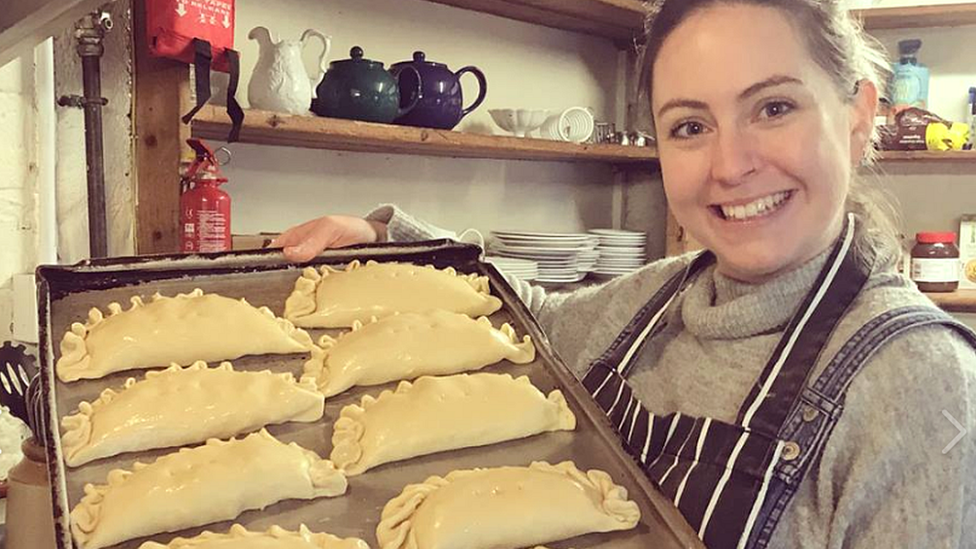
- Published4 June 2019
